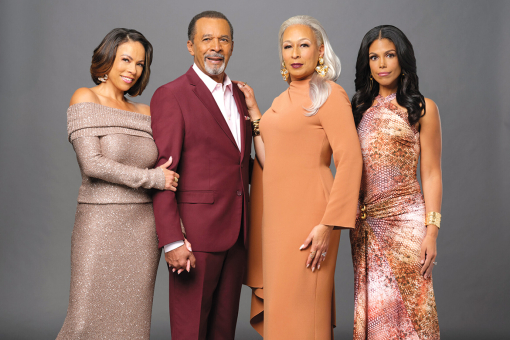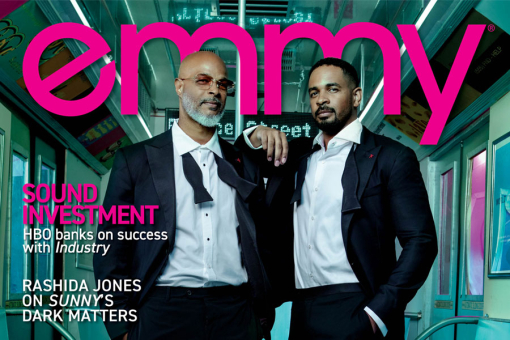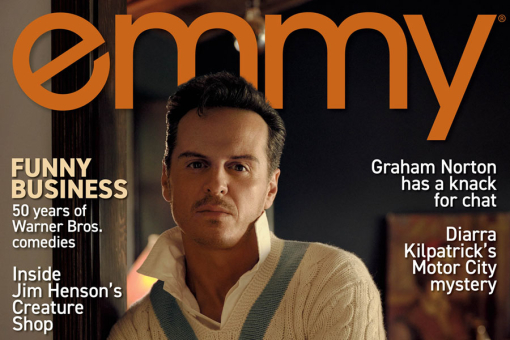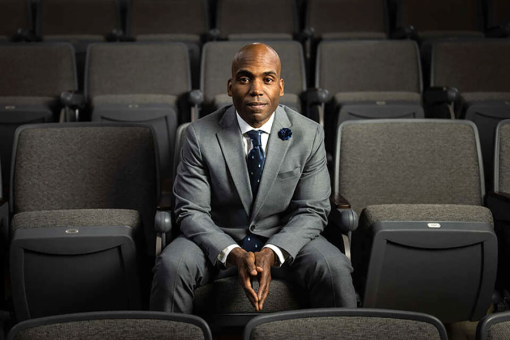"Black is in," The New York Times proclaimed in March 1990, as the film industry experienced an explosion of films from Black creators.
Movies like New Jack City, House Party, Soul Food and Waiting to Exhale were exploring various themes, but there were gaps in the types of stories being told — particularly when it came to love. Janet Jackson and Tupac's Poetic Justice (1993) and Jada Pinkett-Smith's Jason's Lyric (1994), for example, juxtaposed romance against inner-city angst; Waiting to Exhale (1995), with Whitney Houston and Angela Bassett, gave voice to Black women unlucky in affairs of the heart.
Then came The Best Man. Arriving in 1999 with an ensemble cast that included Nia Long and Taye Diggs (both Black rom-com heroes for starring in Love Jones and How Stella Got Her Groove Back, respectively), Malcolm D. Lee's story about an octet of polished, successful strivers navigating amour, career and friend drama upended the status quo, both in Black Hollywood and in mainstream Tinseltown.
The Best Man focuses, as the title implies, on men: Harper (Diggs), the main protagonist and a slightly neurotic writer, is best man for the groom, Lance (Morris Chestnut), a macho, religious footballer. Their friends from college include sensitive, bookish Murch (Harold Perrineau) and pot-smoking, bohemian wild card Quentin (Terrence Howard).
As unremarkable as it sounds today, seeing this band of affluent brothers work through relationships and in-group conflicts in a setting that is not the hood, a sports team, a gang or some other milieu where Black men struggle or are victims was, in the '90s, revolutionary. In a way, it still is.
"I wasn't seeing myself" onscreen, Lee says of those years. "I wasn't seeing the people that I went to school with — upwardly mobile and progressive, fully educated. And if I did, those Black men were very snooty and checked their ethnicity at the door. I was like, 'We need a better representation.'"
Thus began a franchise (The Best Man Holiday arrived in 2013) that has made more than $100 million worldwide and, in what is surely a bittersweet moment for fans, now approaches its eight-episode farewell, The Best Man: The Final Chapters. Twenty-three years later — with the cast members now all beloved veteran actors and the landscape brimming with nuanced depictions of middle-class Black American life — Lee's pioneering and still very relevant story concludes in a way he could not have predicted: on a streaming platform. The Final Chapters drops on Peacock on December 22.
"I think this is a good send-off for these characters that you love so much," says Lee, cousin of Spike and director of films including Girls Trip (2017) and Space Jam: A New Legacy (2021). "There might be a little sadness, but all good things must come to an end."
When viewers reunite with the guys and the women who love them, we find the group in the not-too-distant future. Harper, in his early fifties and never more dapper or successful, is seeing the thinly veiled book about his friends — the volume that caused so much tension in the first film — being adapted into a movie. In the series' very first moments, he walks to a podium, addressing a crowd at an unexplained event, as a voiceover hints at what's to come.
"Life," Harper says, "gets complicated as we get older; marriages, friendships and relationships take work, but if we're lucky we end up where we're supposed to." These maxims are universal to all adults, of course, but they foreshadow drastic change for the characters — more of the juicy, often touching drama and frequently hilarious shenanigans that have absorbed the franchise's followers for decades.
"He's lived life, he's had some shit go down," Diggs says of Harper. "And as a writer, you need to have experiences — fuckups, downfalls, stumbles, all of that. The issues that he's going through in his relationship are hard, and as painstaking as they may be, it helps [him as] an artist."
But first, the backstory, in brief:
Harper is partners with earthy chef Robyn (Sanaa Lathan) but has long had a mutual crush on career-focused Jordan (Nia Long), the proverbial one who got away.... Harper's best friend, Lance, still has issues trusting Harper because Harper used details of Lance's life in his work and — oops! — slept with Mia (Monica Calhoun) before she wed Lance.... Murch was previously coupled with villainous vixen Shelby (Melissa de Sousa) but left her in the first film for Candace (Regina Hall), an exotic dancer at Lance's bachelor party.... Murch and Candace are now married with kids, while loose cannon Shelby — part of a fictitious The Real Housewives of Westchester when we last saw her — has been secretly hooking up with Quentin, who announced at the end of Holiday that he was getting married.
Quentin's intended was left unclear but is revealed at the start of The Final Chapters, giving the new series at least one wedding, a whole lot of fun mess and the likely culmination of a will-they-won't-they that dates to the beginning of the first film. It's a little soapy and a hoot to watch, but through this constellation of characters, viewers see heartbreak, joy, triumph, screwups, screwing and — at the center of it all — love. In all forms.
"It was about brotherhood," Chestnut says. "About family. And despite getting into knock-down, drag-out fights, we knew they were going to be okay."
Lee initially envisioned The Best Man franchise concluding with two movies. Of course, an eight-episode series is an entirely different enterprise, especially for a writer-director who has primarily worked in the much more autonomous medium of cinema. Though he has directed some episodes of television for shows including Harlem (Prime Video), Wu-Tang: An American Saga (Hulu) and the miniseries Shots Fired (Fox), Lee had to make some adjustments to best serve The Final Chapters — adjustments he appreciated.
"I loved the writers' room," he says. "They had a lot of ideas that were like, 'Let's think about it this way or that way.' That was cool. And handing [directing] over to other directors was not something I was used to; I was going to direct all eight episodes but [realized] that was going to kill me. It was good to zoom out and be mindful of the entire series."
Indispensable in adapting Lee's vision to television: fellow executive producer and coshowrunner Dayna Lynne North (Insecure, Veronica Mars). A self-described fan of the films — North charmed Lee in their first meeting by recalling how she watched The Best Man and Holiday with her college-friend clique — she aimed to retain the essence of the source material while applying her expertise in the medium.
"I was one of those nerdy, super-artsy, suburban Black kids who felt like I found my tribe in college," says North, a graduate of the University of Southern California's School of Cinematic Arts. "[The Best Man] felt very much like it was my life. But I said [to Lee], 'You have spent your career in features, where the director is king. I have spent my career in television, where executives, the writer and producer run the show. So if we're going to do this, it's going to need to be an actual partnership.'"
Lee welcomed that spirit of collaboration and the opportunity to infuse The Best Man: The Final Chapters with values that reflect the current era. Naturally, the conversations that cisgender, heterosexual Black men were having about women, relationships and sex in 1999 were different than conversations those same men would have today.
To wit: a central source of conflict in The Best Man is Lance's discovery that Harper had slept with Lance's bride-to-be years prior — an understandably unsettling revelation, but one that might seem like no big deal to the twenty-somethings of today, who consider polyamory, non-monogamy and even gender identity as options on their menu of life choices.
Very little, if anything, about The Best Man or its characters seems outright problematic today, but in making The Final Chapters, Lee consciously sought to reflect the times — in part by having a woman steer the ship and filling the writers' room with female voices.
Back in 1999, he recalls, "I never expected women to come to [see]" The Best Man, due to its male-centered story. "Now, in this era, we're talking about therapy and men expressing themselves, and there's more acceptance around asking for help and being vulnerable. That's progress."
In screenings for the first film, he remembers watching male viewers mock moments of sensitivity; in screenings for the sequel, he saw men crying at scenes in which the guys were vulnerable with each other. "For Black people to see themselves in ways that are nuanced and layered, that's always been the goal."
North describes The Final Chapters as a metamorphosis and an evolution, which meant expanding the worldview of the women in its universe. The two movies already treat women as worthy of empathy and respect, and there's no better example of that low-key feminism than Candace, who has the most progressive arc. In the sequel, her past as a sex worker negatively impacts the career of her husband, Murch. But when he chooses Candace over the job, The Best Man quietly asserts that Candace deserves as much respect as the other women in the story, and that sex work does not devalue her. When we're reunited with Candace and Murch in The Final Chapters, they're raising a preteen daughter and are perhaps the most stable couple of all.
"It's wonderful that we aren't judging people merely by their profession," Hall says. The Best Man was her first big role; in past interviews, she has recalled that from her first day on set (which required her to striptease), Lee and her colleagues always made her feel comfortable. "There's an allowance for people to grow and evolve," she adds. "I think it's nice to see that [Candace's past] is not marginalized and there's less judgment."
Long sees Jordan, the high-profile journalist she plays, as someone other women can look up to. "Malcolm does a really good job representing sophisticated, educated, sexy, complicated, elegant and sometimes a little ratchet [raunchy] people. And I think Jordan is an extension of the Oprah era, [a role model] for Black women to believe we have a place in journalism, and that we can be honest and open and edgy with topics we discuss."
The Final Chapters gives voice to other identities previously unseen, reflecting its audience's evolving mindset.
"One of the things that we were excited about," North says, "was, how do we honor where we are in society right now, the role of masculine and feminine identity? All of that is undergoing a much-needed evolution, so how do we confront these characters who are in this midlife metamorphosis? What does masculinity mean in 2023? Being able to hold up a mirror has always been a part of the [franchise]. Being on the cutting edge of the issues of today — whether intersectionality, gender, LGBTQ+ identity — that's the legacy of The Best Man."
Yet The Best Man's most poignant legacy is, paradoxically, its total normalcy. With the exception of some touchpoints — like people doing the Electric Slide at a wedding or the language characters use (including the N-word as a term of endearment) — very little about the films is exclusively, inseparably "Black." Nothing about the way Harper and his friends struggle with relationships and juggle career is fundamentally "Black"; everybody does those things. Which was Lee's point from the start.
"I wanted to make a universal story," Lee says. "People want to get married, they want to fall in love, they want to feel secure, they want to have friendships. All of these things are not culturally, specifically Black."
The Final Chapters does make some minor tweaks, North says, exploring what it means to be Black in 2022 and 2023. "It feels more specific in the way the stories unfold," she says, "the way that the characters speak about their world, the experiences they want to have and what they participate in in terms of activism."
Still, what has made The Best Man so remarkable — both for its makers and audience — is its relative un-remarkableness: the ways it, as North says, depicts Black Americans "being flawed, being messy and being funny in a three-dimensional way." Only two years removed from the global protests of 2020 and the ensuing calls for more change in representation onscreen and behind the camera, The Final Chapters promises to be as significant and forward-leaning as the first film was all those years ago.
"What drew me to the [first film's] script," Diggs recalls, "was that I had never read or seen a movie with African Americans portrayed in that fashion. It's not as bad now, but it continues. At the time, we didn't know that the film would be groundbreaking. As time passed, it has left its mark and I'm proud of it. There were a few times on set [making the series] when we all looked at each other and said, 'Wow, we're all still here. And every single one of us is still doing our thing.' That was cool."
Parting Thoughts
Sanaa Lathan
Sanaa Lathan, a second-gen Hollywood trailblazer, helped ground The Best Man as Robyn, Harper's partner, who's always seemed slightly unsure about his devotion to their union.
Q: What are you most proud of about this franchise?
Lathan: Many of us are close friends, so it doesn't feel like work when we come together. I think it's so special that we're all still alive and thriving in the business. For this group of Black actors to have had consistency and success over these last twenty-something years is truly a miracle.
Harold Perrineau
As Murch, Harold Perrineau plays a sensitive, anti-alpha male, a philosophical type who wooed wife Candace (Regina Hall) with a quote from poet Gwendolyn Brooks.
Q: How will it feel to say goodbye to Murch?
Perrineau: I will be a little sad. He's such a nice man and has the best marriage I have ever seen. He is never toxically male, and sometimes that appears soft and unattractive. But I think people love Murch for his kindness and they don't judge him.
Melissa de Sousa
Melissa de Sousa is pitch-perfect as Shelby, the archetypal chaotic "crazy ex" (of Perrineau's Murch), known for hilariously bitchy one-liners and soap opera-level drama.
Q: How has working with creator Malcolm D. Lee changed you as a performer and an artist?
De Sousa: From the beginning, Malcolm made me feel free to choose what I needed as a character and artist. He was open to my ideas and actually implemented many of them. That collaboration gave me the confidence to continue to do so with other projects.
Terrence Howard
Long before he helped usher in a new era on TV as Lucious Lyon on Fox's groundbreaking Empire, Terrence Howard played pot-smoking trustafarian Quentin in The Best Man.
Q: What do you hope people will take away from your character, and from the franchise overall?
Howard: This is your life! Live it now, or somebody else will. —M.V
Creator Malcolm D. Lee and Dayna Lynne are executive producers and coshowrunners of The Best Man: The Final Chapters. Also executive-producing are Dominique Telson and Sean Daniel; directing are Lee, Charles Stone III, Robert Townsend and Stacey Muhammad. The series is produced by Universal Television.
This article originally appeared in emmy magazine issue #12, 2022, under the title, "Love Lessons."















